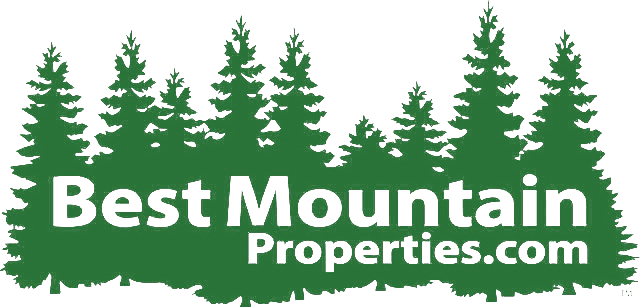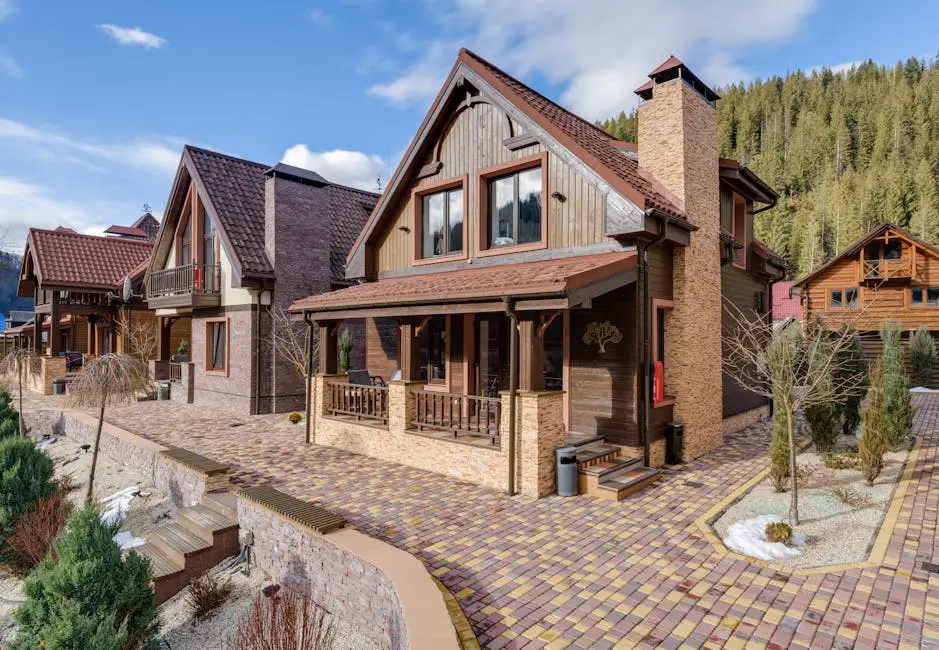Buying a home in a mountain community can be both thrilling and daunting. Whether you’re searching for a cozy cabin or a luxurious retreat, understanding the unique aspects of the mountain real estate market is crucial. In this guide, we’ll walk you through what you need to know to make informed decisions and find your ideal property.
Understanding the Unique Mountain Real Estate Market
Mountain real estate markets can differ significantly from urban or suburban areas. We will explore the factors that make these markets unique, including seasonality, local demand, and the impact of tourism on property values.
As ski resorts, hiking trails, and stunning views draw visitors year-round, it’s essential to grasp how these attractions influence real estate prices. For instance, properties closer to ski slopes or hiking trails may hold higher value during peak seasons, which can fluctuate dramatically. The seasonal nature of these markets influences not only pricing but also availability, making strategic timing key for prospective buyers.
Understanding the demographics of potential buyers is equally vital. You might find a blend of year-round residents, vacation home seekers, and investors, each with unique needs and expectations. This diverse pool can drive the market dynamics in unexpected ways. For example, while a younger demographic may prefer more modern amenities, older buyers might lean towards traditional mountain aesthetics.
Finally, keep in mind that each mountain community has its history and charm, creating nuances in pricing and desirability. Engaging with local market specialists can provide valuable insights, equipping you with the information needed to navigate your mountain real estate journey more confidently.
Key Factors to Consider When Buying Mountain Property
From access to amenities and services to environmental considerations, understanding what factors to prioritize is essential. We’ll delve into zoning laws, land use, and other critical elements that may affect your buying decision.
One of the key considerations when buying mountain property is accessibility. Not only should you assess the condition of roads during different seasons, but also the proximity to essential services like hospitals, grocery stores, and schools. These factors can significantly impact your daily life and your property’s long-term value.
Another crucial aspect is understanding local zoning laws. Are you able to rent out your property when you’re not using it? Are there any restrictions on building additions or modifications? Knowing the zoning regulations in advance can save you from future headaches and ensure that your dream mountain home can accommodate your plans.
Environmental assessments are also vital. Properties in mountain areas can sometimes face unique risks such as landslides, flooding, or even wildlife encounters. A thorough evaluation can help buyers understand these potential challenges and prepare accordingly. Moreover, you may want to consider energy efficiency aspects, as they play a crucial role in maintaining comfort while living in a mountain environment.
Finally, the community surrounding your potential purchase plays a substantial role in your experience as a homeowner. Do the local residents share your interests? Is there a vibrant community lifestyle that aligns with your values? These personal considerations can dramatically affect your long-term satisfaction with your new home.
The Importance of Working with a Local Real Estate Agent
Engaging a knowledgeable local agent can make all the difference. We’ll discuss how the right agent can help you navigate the complexities of mountain real estate, find hidden gems, and negotiate the best deal.
A local agent understands the quirks of the mountain market—everything from the most sought-after ski neighborhoods to the times of year when properties change hands. Their expertise allows them to guide buyers through the nuances of market trends and pricing, ensuring you get the best bang for your buck.
Moreover, a seasoned agent can provide insights into properties that may not even be listed yet, known as pocket listings. These exclusive opportunities can be game-changers, especially in a competitive market. They can help you uncover a treasure that aligns perfectly with your vision, often before others even get a chance to see it.
Beyond negotiation skills and local knowledge, a good agent will have a network of trusted professionals, from inspectors to mortgage brokers. This network can streamline your buying process significantly, giving you peace of mind during a potentially stressful time.
In summary, selecting a dedicated local real estate agent is a key step in your home-buying journey. With their guidance, you’ll not only navigate the mountain real estate landscape more effectively but also enjoy a smoother transition into your new mountain lifestyle.
Financing Your Mountain Home: What Buyers Need to Know
Financing can be tricky in mountainous areas due to unique property considerations. This section covers the types of loans available, potential lenders, and tips for securing financing for your mountain retreat.
Understanding the nuances of financing in mountain areas is essential. Not all lenders are equipped to handle the unique aspects of mountain properties, which may involve unconventional land use or winter maintenance costs. It’s crucial to find a lender who understands these challenges and can offer lending options that suit your financial situation.
Moreover, consider looking into specialized loan programs that cater to second-home buyers or properties in specific zones. These may include lower down payment options or favorable interest rates, which can significantly ease your financial burden. Always remember to assess all potential costs, including HOA fees or seasonal maintenance expenses that can impact your monthly payments.
One often-overlooked aspect is the importance of a solid financial history. A strong credit score will afford you better rates and terms. Make sure to review your financial health well ahead of applying—culminating in a stronger approval position when you find your dream mountain property.
Lastly, don’t hesitate to consult financial advisors or real estate professionals who specialize in mountain properties. Their expertise can provide insights into strategies you may not have considered, allowing you to make informed financial decisions that align with your long-term goals.
What to Expect During Inspections and Appraisals
Inspections and appraisals are critical steps in the buying process. We’ll explain what to expect, common issues that arise in mountain properties, and how to spot potential red flags before making a purchase.
During an inspection, expect a thorough examination of the property, focusing on structural integrity, plumbing, and electrical systems. In mountain homes, there are some common issues to be aware of, such as water drainage, roof conditions due to heavy snowfall, and pest inspections, particularly for cabins that might have been vacant.
It’s vital to choose a qualified inspector who understands the complexities of mountain properties. These experts will help identify both immediate issues that need addressing and potential problems that could arise in the future, giving you a clearer picture of what you’re getting into.
In terms of appraisals, be prepared for a comprehensive evaluation of your property’s worth. An appraiser will consider factors like location, size, condition, and recent sales of similar homes in the area. Understanding the appraisal process is critical, as it will not only affect your financing but also inform your negotiation strategy.
Finally, use these assessments as opportunities for negotiation. If the inspection reveals significant issues, don’t hesitate to discuss repairs or adjustments in the selling price with your agent. Being proactive can save you time, effort, and money in the long run.
Embracing Mountain Life: Community and Lifestyle Considerations
Owning a home in the mountains is not just about the property; it’s also about the lifestyle and community. We’ll examine local activities, community resources, and tips for integrating into your new mountain neighborhood.
Living in a mountain community often means embracing an active lifestyle. Whether it be skiing, hiking, or mountain biking, the opportunities for outdoor activities abound. Before your purchase, take the time to explore these activities and see how they resonate with your interests. Engaging in local clubs or group events can also enhance your experience.
Community is key in mountain towns. Unlike city living, where you might pass your neighbors without a second glance, here, you’ll likely cultivate relationships with those around you. Attend local events and farmers’ markets; these interactions will enrich your mountain experience and help you feel at home.
Consider the amenities available in your chosen area. Proximity to grocery stores, healthcare facilities, and recreational activities can greatly influence your quality of life. Many mountain communities also offer unique aspects such as local artisans or specialty shops that define the character of the area.
Finally, remember that mountain living may come with challenges such as isolation during winter months or longer travel times for errands. Awareness of these factors can help you better prepare for life in a picturesque yet sometimes unpredictable environment.
Embrace the Adventure of Mountain Living
Navigating the mountain real estate market requires a blend of knowledge, patience, and a sense of adventure. By educating yourself about the local market, working with seasoned professionals, and being prepared for the unique challenges of mountain living, you’ll be well on your way to finding your dream home in these beautiful landscapes.



